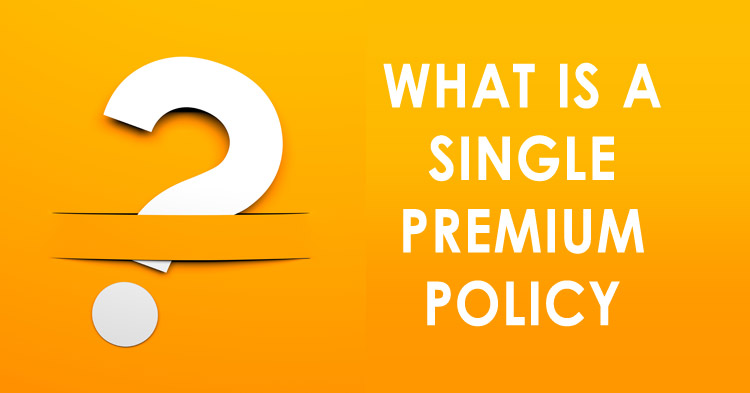OneInsure Blog
What Is A Single Premium Policy?
If you’ve bought a life insurance policy, you know you got to pay your premiums to keep your policy active.
Now, there are two ways of making premium payments - regular premium payments and single premium payment. In this article, we will focus on the latter.
A single premium policy, as the name suggests, is one where the policyholder makes premium payment just once. The benefits continue for the entire term of the plan. E.g. You buy a single premium plan for 20 years with a premium amount of ₹1,00,000. You only have to make the payment once and you will be covered for the complete term of 20 years.
Single premium policies are recommended if:
- You have a huge pool of money lying around and you want to invest it
- You don’t like to keep track of premium due dates
- You don’t have a steady flow of cash
- You have a busy schedule and travel often
Tax benefits
Tax benefits can be claimed up to ₹ 1,50,000 under Section 80C of the Income Tax Act. Deductions on premiums paid can be availed only for the year you pay the premiums.
The proceeds from the life insurance policy will be tax-free if the minimum sum assured is at least 10 times the premium paid. If this criteria is not met, the complete proceeds become taxable during the year of receipt.
Conclusion
The decision of whether or not to opt for single premium policy must be according to the lump sum amount available with you. Since you are investing a large sum, you must be careful in deciding which policy you avail and from which insurer. Keep in mind that you will only get the tax benefit in the first year. So to save tax you may have to look for other tax-saving avenues.


 Comments
Comments

 life insurance, premium payment, single premium
life insurance, premium payment, single premium


